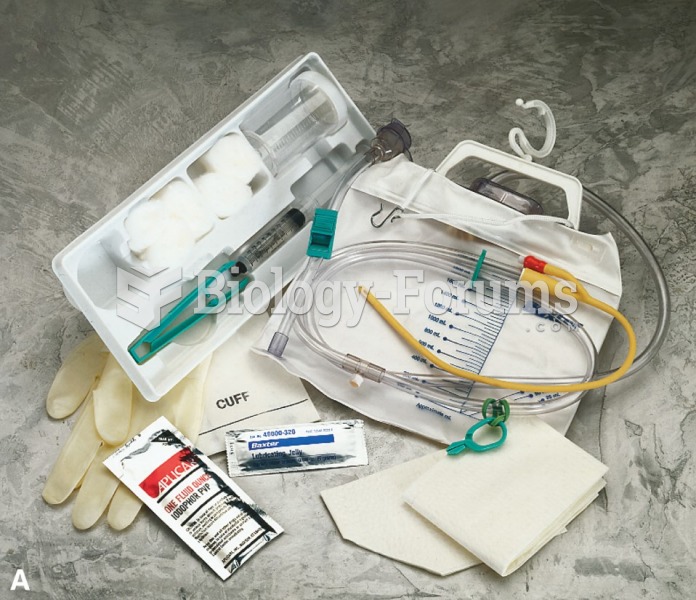|
|
|
When Gabriel Fahrenheit invented the first mercury thermometer, he called "zero degrees" the lowest temperature he was able to attain with a mixture of ice and salt. For the upper point of his scale, he used 96°, which he measured as normal human body temperature (we know it to be 98.6° today because of more accurate thermometers).
Children with strabismus (crossed eyes) can be treated. They are not able to outgrow this condition on their own, but with help, it can be more easily corrected at a younger age. It is important for infants to have eye examinations as early as possible in their development and then another at age 2 years.
Asthma cases in Americans are about 75% higher today than they were in 1980.
Human kidneys will clean about 1 million gallons of blood in an average lifetime.
More than 150,000 Americans killed by cardiovascular disease are younger than the age of 65 years.
 Urinary catheterization. The procedure involves the insertion of a flexible tube, or catheter, throu
Urinary catheterization. The procedure involves the insertion of a flexible tube, or catheter, throu
 Foley catheter: The inflated balloon at the tip of the catheter holds the Foley catheter in place in ...
Foley catheter: The inflated balloon at the tip of the catheter holds the Foley catheter in place in ...





